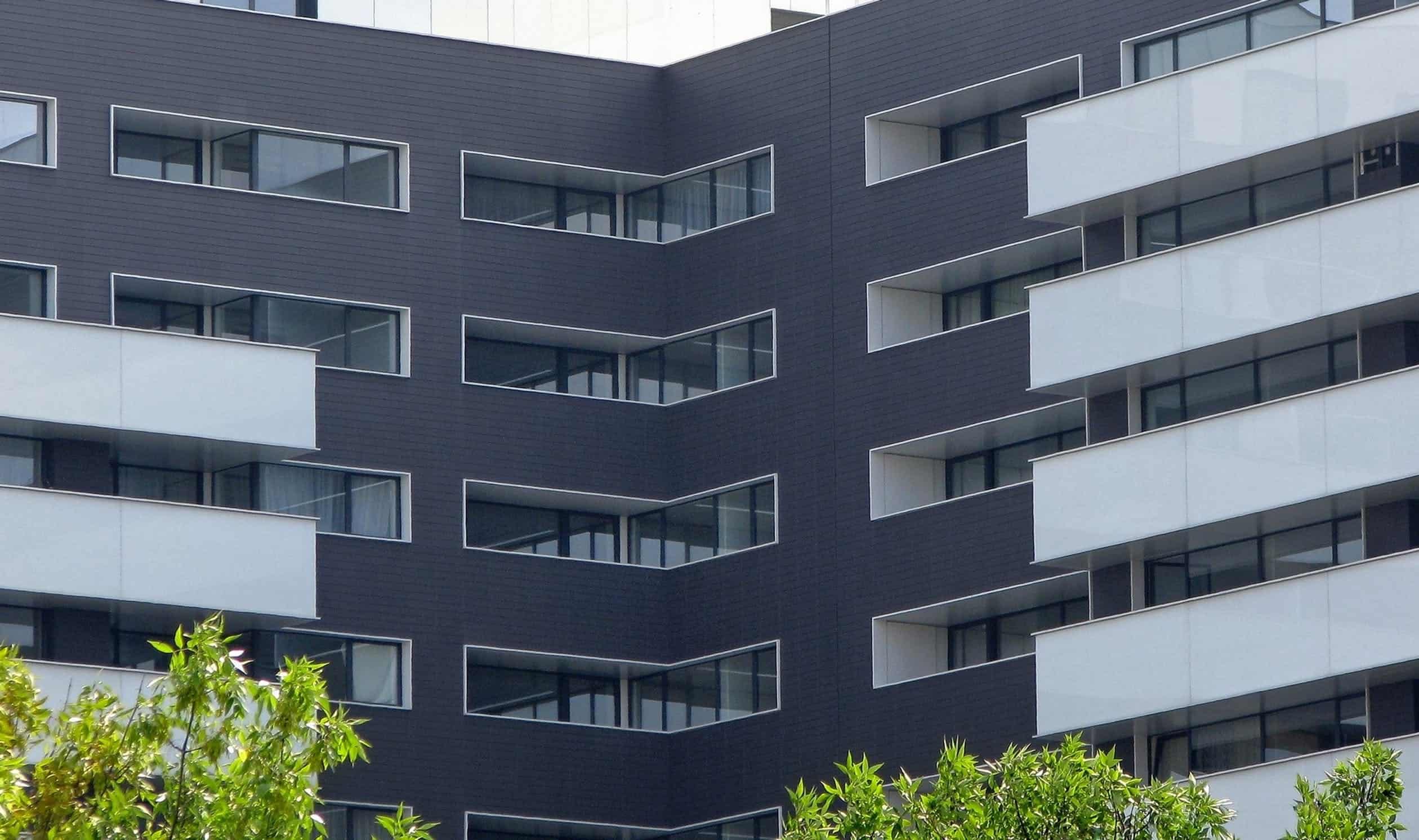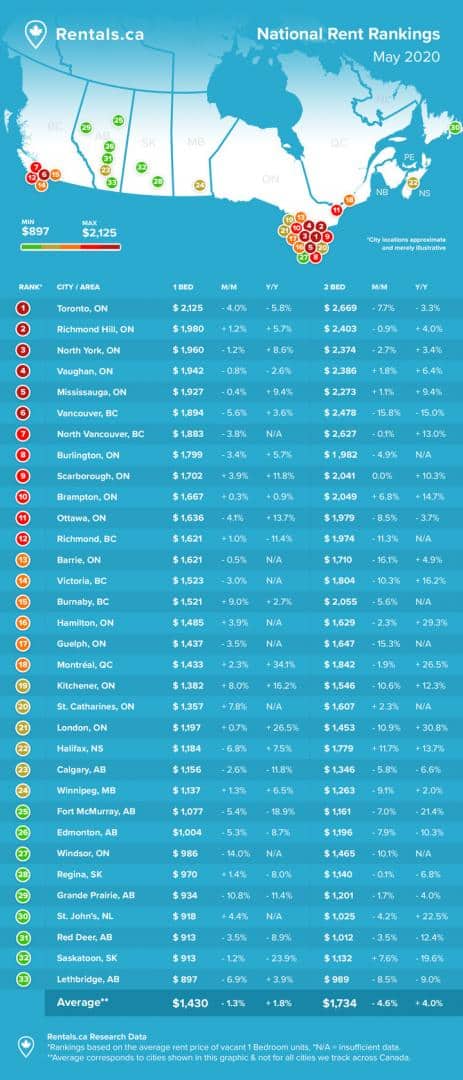Rental rates in Mississauga holding steady so far during the pandemic
Published May 14, 2020 at 8:57 pm

While COVID-19 has resulted in rental rates dropping across Canada, prospective tenants in Mississauga aren’t getting much of a break.
According to the monthly National Rent Report from Rentals.ca and Bullpen Research & Consulting, the novel coronavirus has led to price declines in most major Canadian cities–but Mississauga rents are holding steady so far during the pandemic.
The report says that average monthly rents were down month-over-month in April in Toronto, Vancouver, Calgary and Ottawa. Transactions are also down, as listings on Rentals.ca were down 3.2 per cent and 4.6 per cent respectively month-over-month, even though average rents in Canada were unchanged in April over March at $1,842.
Mississauga came in fifth on the list of 33 cities for average monthly rent for a one-bedroom at $1,927 and seventh for average monthly rent for a two-bedroom at $2,273. Rental rates for a one-bedroom apartment are down 0.4 per cent month-over-month but are up 9.4 per cent year-over-year.
Rates for a two-bedroom apartment in Mississauga are actually up 1.1 per cent month-over-month and 9.4 per cent year-over-year.

Toronto led all 33 cities on the list for average monthly rent in April for a one-bedroom home at $2,125, and for a two-bedroom at $2,669. But while Toronto rental rates are high, COVID-19 has had a pronounced impact on the market. The report says that month-over-month, the average monthly rent for a one-bedroom in Toronto fell 4 per cent in April for a one-bedroom unit. Prices fell 7.7 per cent for a two-bedroom suite.
Year-over-year, average monthly rent in Toronto for a one-bedroom declined 5.8 per cent and was down 3.3 per cent for a two-bedroom.
Eight areas of the Greater Toronto Area finished in the top 10 for most expensive rent in Canada.
According to the report, Mississauga was down 1.7 per cent in average monthly rent for rental apartments and condominium apartments.
The report says the areas experiencing the biggest declines are the prime downtown Toronto markets. The Yorkville area has also experienced a decline of 9.4 per cent monthly. According to the report, these hard-hit areas typically boast a lot of Airbnb activity, which has likely depressed rental rates.
“The average rental rate for all listings on Rentals.ca in Canada did not decline in April, but the COVID-19 pandemic is having a big impact on the national rental market in Canada,” said Ben Myers, president of Bullpen Research & Consulting, in the report.
“Larger single-family and townhouse units are remaining on the market, pulling the average rent up, while other major landlords are offering a free month of rent or other substantial incentives to entice tenants. When looking at rental apartments and condo apartments only, monthly average rental rates declined by 6 per cent or more in Toronto, Vancouver, Calgary, Winnipeg, Ottawa and Edmonton.”
Interestingly enough, the report notes that Rentals.ca has experienced a noticeable increase in website traffic after seeing a 35 per cent decline in pageviews over the final two weeks of March.
According to the report, Rentals.ca saw its all-time high in traffic numbers in the first week of May surging 59 per cent compared to the first week of April–something the company attributed to optimism about the gradual economic recovery taking place throughout the country.
On a provincial level, Ontario had the highest rental rates in April, with landlords seeking $2,141 per month on average for all property types. British Columbia had the second-highest rental rate at $1,946 per month, while Newfoundland and Labrador had the lowest at $1,001.
According to the report, average rent declined from March to April in three large provinces: Alberta dropped 5.7 per cent; Ontario showed a 4.6 per cent decrease and British Columbia was down 0.7% monthly.
“The sharp monthly declines in the average rental rates in major cities in Canada was stark,” said Matt Danison, CEO of Rentals.ca, in the report.
“The average two-bedroom unit in old Toronto was offered at $2,669 per month in April, the lowest rate in 16 months. One-bedroom rental rates haven’t been this low in Toronto since 2018. With the gradual opening of the economy, this may be the low point for rental rates in some time if tenants feel comfortable enough to move.”
Pointing out another unique COVID-related finding, the report says that people in Canada looking to rent care about proximity to grocery stores much more than before the outbreak — a 13.5 per cent increase compared to January averages.
And, renters care much less about public transit (a 14 per cent drop), and they are much more interested now in cycling (a 17.3 per cent increase).
“Since COVID-19, renters’ lifestyle demands have changed and have not rebounded to pre-COVID times; we see renters are looking to live in more cycling- and pedestrian-friendly areas, with better access to groceries and better access to schools,” said Vincent-Charles Hodder, CEO of Local Logic.
The National Rent Report charts and analyzes monthly, quarterly and annual rates and trends in the rental market on a national, provincial, and municipal level across all listings on Rentals.ca for Canada.
insauga's Editorial Standards and Policies advertising





